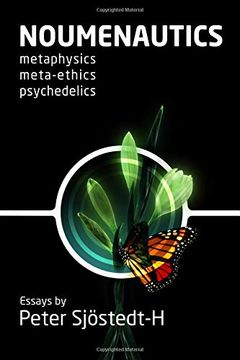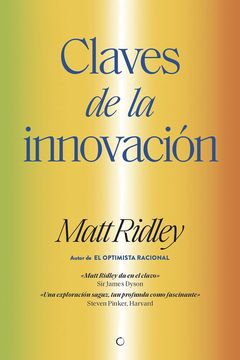Kenneth Cukier
Libros Recomendados
Kenneth Neil Cukier is an American journalist and author of books on technology and society. He is best known for his work at The Economist and the book Big Data: A Revolution that Will Transform How We Work, Live and Think, coauthored with Viktor Mayer-Schönberger and published by Houghton Mifflin Harcourt in 2013.
5 libros en la lista
Ordenar por
Últimas recomendaciones primero
Diseño
Explore metaphysics, nihilism, and psychedelic phenomenology in this thought-provoking collection of essays and notes by philosopher Peter Sjöstedt-H. The book covers topics such as the sentience of cells, the constrictions of consciousness, the magic of mushrooms, and the neologism of neo-nihilism. Tracing the fall of western morality through famous philosophers, this book is perfect for both the thoughtful lay-reader and specialist alike.
Kenneth Cukier
2021-12-22T01:26:18.000Z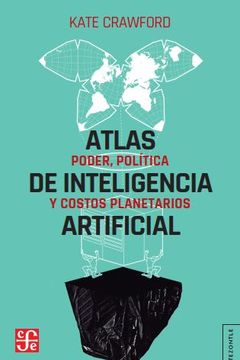
Atlas de inteligencia artificial
Power, Politics, and the Planetary Costs of Artificial Intelligence
Desde mediados de la década de 2000, la inteligencia artificial (IA) se ha expandido a gran velocidad a nivel mundial, como campo académico y como industria. Pero ¿es posible crear inteligencia? ¿Cómo son los sistemas de IA que se desarrollan a escala planetaria? ¿Qué tipos de políticas están contenidas en el modo en que esos sistemas cartografían e interpretan el mundo? ¿Cuáles son las consecuencias de incluir la IA en los sistemas de toma de decisiones en los lugares de trabajo, la educación, la salud, las finanzas, la justicia y el gobierno?
Atlas de inteligencia artificial demuestra que la IA no es una innovación tecnológica neutral u objetiva ni una fuerza espectral o
incorpórea, sino una verdadera industria de extracción global. De hecho, la creación de los sistemas de IA contemporáneos dependen de la explotación de los recursos energéticos y minerales del planeta, de la mano de obra barata y de los datos a gran escala. De manera crítica, advierte cómo la IA altera la forma en que el mundo es visto y entendido, e impulsa un cambio hacia gobiernos antidemocráticos, una mayor desigualdad y enormes daños medioambientales.
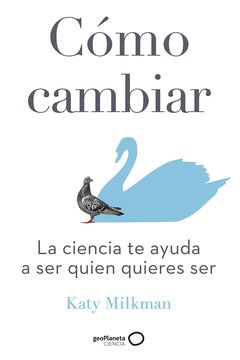
Cómo cambiar
La ciencia te ayuda a ser quien quieres ser (geoPlaneta Ciencia)
How to Change
is a powerful, groundbreaking blueprint to help you - and anyone you manage, teach or coach - to achieve personal and professional goals, from the master of human nature and behaviour change and Choiceology podcast host Professor Katy Milkman.
Award-winning Wharton Professor Katy Milkman has devoted her career to the study of behaviour change. An engineer by training, she approaches all challenges as problems to be solved and, with this mind-set, has drilled into the roadblocks that prevent us from achieving our goals and breaking unwanted behaviours. The key to lasting change, she argues, is not to set ever more audacious goals or to foster good habits but to get your strategy right.
In How to Change Milkman identifies seven human impulses, or 'problems', that commonly sabotage our attempts to make positive personal and professional change. Then, crucially, instead of getting you to do battle with these impulses she shows you how to harness them and use these as driving forces to help instil new, positive behaviours - better, faster and more efficiently than you could imagine.
Drawing her own original research, countless engaging case studies and practical tools throughout to help you put her ideas into action, Milkman reveals a proven, inspiring path that can take you - once and for all - from where you are today to where you want to be.
Kenneth Cukier
2021-04-27T22:31:30.000ZInnovation is the main event of the modern age, the reason we experience both dramatic improvements in our living standards and unsettling changes in our society. Forget short-term symptoms like Donald Trump and Brexit, it is innovation itself that explains them and that will itself shape the 21st century for good and ill. Yet innovation remains a mysterious process, poorly understood by policy makers and businessmen, hard to summon into existence to order, yet inevitable and inexorable when it does happen.
Matt Ridley argues in this book that we need to change the way we think about innovation, to see it as an incremental, bottom-up, fortuitous process that happens to society as a direct result of the human habit of exchange, rather than an orderly, top-down process developing according to a plan. Innovation is crucially different from invention, because it is the turning of inventions into things of practical and affordable use to people. It speeds up in some sectors and slows down in others. It is always a collective, collaborative phenomenon, not a matter of lonely genius. It is gradual, serendipitous, recombinant, inexorable, contagious, experimental and unpredictable. It happens mainly in just a few parts of the world at any one time. It still cannot be modelled properly by economists, but it can easily be discouraged by politicians. Far from there being too much innovation, we may be on the brink of an innovation famine.
Ridley derives these and other lessons, not with abstract argument, but from telling the lively stories of scores of innovations, how they started and why they succeeded or in some cases failed. He goes back millions of years and leaps forward into the near future. Some of the innovation stories he tells are about steam engines, jet engines, search engines, airships, coffee, potatoes, vaping, vaccines, cuisine, antibiotics, mosquito nets, turbines, propellers, fertiliser, zero, computers, dogs, farming, fire, genetic engineering, gene editing, container shipping, railways, cars, safety rules, wheeled suitcases, mobile phones, corrugated iron, powered flight, chlorinated water, toilets, vacuum cleaners, shale gas, the telegraph, radio, social media, block chain, the sharing economy, artificial intelligence, fake bomb detectors, phantom games consoles, fraudulent blood tests, faddish diets, hyperloop tubes, herbicides, copyright and even – a biological innovation -- life itself.
Kenneth Cukier
2021-03-13T12:12:53.000Z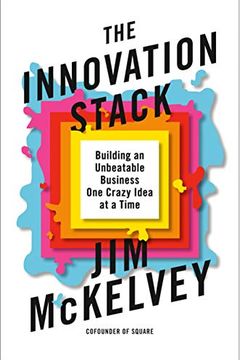
The Innovation Stack
Building an Unbeatable Business One Crazy Idea at a Time
Discover the secret to building a resilient, world-changing company in "The Innovation Stack." Follow the journey of Jim McKelvey as he co-founds Square with Jack Dorsey, overcoming obstacles and questioning industry assumptions to create a groundbreaking platform for small merchants to accept credit card payments on their mobile phones. Learn from McKelvey's experience as he explores the strategy behind Square's success and the pattern of entrepreneurship that is rare but repeatable. This thrilling business narrative is a call to action for us all to find the entrepreneur within ourselves and fix unsolved problems - one crazy idea at a time.
Kenneth Cukier
2021-03-13T12:12:53.000ZRecomendado por
Peep Laja